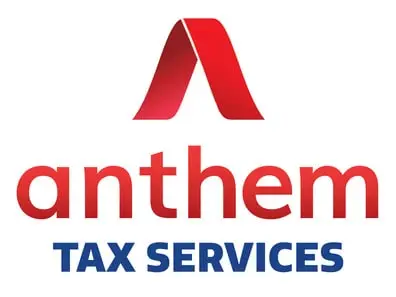
Owing back taxes to the IRS can complicate your life in several ways. If you’re looking to buy a house while you have a federal tax debt, you may have a more difficult time getting a mortgage. It’s still possible, but you’ll be seen as a riskier borrower. If you’re trying to get approved for a home loan while in tax debt, there are things you can do to prove you’re in good standing and will not be in danger of defaulting on a mortgage.
Do I Need to Pay All My Back Taxes Before I Can Buy a Home?
While mortgage lenders often can work with a variety of credit issues, such as collections, bankruptcies, charge offs, and judgements, tax debts are different. When you owe back taxes, the IRS has broad authority to collect. They can issue a tax lien against your property in order to satisfy this debt, and so mortgage lenders may be hesitant to approve a loan, since in this case they’d be second in line after the IRS and could be cut off from their ability to recoup a loss on your loan.
If you haven’t taken any steps toward resolving a tax debt, it’s likely that you won’t be approved for a mortgage. However, if you have evidence that you’re working to resolve your tax debt, many lenders will be willing to work with you to find a solution. The most important thing is to disclose your situation to lenders, including what you’re doing to progress toward paying all your back taxes. Failure to disclose any relevant financial information could result in your application being summarily denied.
What If I Owe Other Taxes?
So far we’ve discussed owing federal back taxes, but other kinds of tax debt, such as state or property taxes, can also affect your likelihood of being approved for a mortgage. As always, your chances depend on your particular circumstances. Any type of debt on your borrower profile generally makes you a riskier investment from a lender’s perspective.
In order to improve your chances for approval, the best plan is to pay or settle these kinds of outstanding debts. A lower debt-to-income ratio always looks better on a mortgage application, and it will help raise your credit score over time as well.
If it isn’t feasible to completely pay off tax debts before applying for a home loan, you can still show that you are making progress toward paying off your debt. Reach out to the local or state agencies you owe and arrange an installment plan and get a better understanding of tax debt relief. If you can show consistent progress toward paying off your tax debt you will appear less risky to lenders.
Resolving Your Tax Debt
It’s often not feasible to pay off your tax debt in full, especially if you owe a large amount. If you can’t postpone purchasing a home while you pay off your tax debt, you may be better off using your cash for your down payment rather than to pay your back taxes, since a substantial down payment can be a big factor in getting a good interest rate.
If the amount you owe in taxes is too big to pay off right away, you’ll be best served by setting up an installment agreement with the IRS or the state or local agency you owe. You may also be able to settle with the IRS for a smaller amount than you currently owe by contacting our tax professionals by phone or email today.
If you’re ready to buy your dream home but you have tax debt hanging over your head, seek out professional assistance from people who work with the IRS on these issues every day.
Tax Debt and Home Loans
If you’re looking to get a mortgage and have unpaid tax debt, the worst thing you can do is ignore it. If you don’t have a payment plan or settlement set up with the IRS, you’re likely to be denied by mortgage lenders. Addressing any tax debts, whether they’re federal, state, or local, with your lender, and explaining what you’re doing to ensure that they are paid off in a timely manner, is important to improve your chances of approval.
It should go without saying, but if you have an issue like a tax debt on your record, make sure that the rest of your financial history is spotless. Build up a record of responsible financial behavior by keeping your spending low, paying off your credit cards, and maintain a low debt-to-income ratio.
Keep an eye on your credit report to make sure that it’s accurate before you apply for a mortgage. Ensure that any new information about repayment plans or settlements are reflected in your credit report, and any outdated information has been expunged. As you monitor your credit and make progress toward paying off your debt, you’ll see your credit score rise.
Can I Get a VA or FHA Loan If I Owe Back Taxes?
It is possible to be approved for a VA loan or an FHA loan if you owe back taxes. There are certain conditions that you’ll need to meet in order to get approved, however, so let’s take a look at those.
VA Loan Approval
If you owe back taxes, you may still be approved for a VA home loan if you meet the following conditions:
- You must satisfy the debt-to-income requirements, including your monthly IRS payment schedule
- You must have made at least 12 consecutive payments on your IRS installment agreement
- You must include a note on your outstanding back taxes on the loan application
FHA Loan Approval
In order to apply for an FHA loan when you owe back taxes, you’ll have to undergo the manual underwriting process. In most cases, when you apply for a loan, a computer algorithm determines whether you’ll be approved by analyzing variables that include your income, credit scores, debt-to-income ratio, and accounts standing. This automatic process gives you a fast decision.
Manual underwriting is a more involved process in which an individual or group will examine your financial situation themselves. Your underwriter will need you to provide additional paperwork that documents your situation as fully as possible. They’ll be looking for evidence of an agreement to repay the IRS. You’ll need to have made at least three months of payments on a valid installment plan.
Keep in mind that you’ll also have to meet the other requirements for an FHA loan, including certain income thresholds and good credit history, in addition to being able to show that you’re paying your back taxes.
Do Unpaid Taxes Affect Mortgage Payments?
Just like other factors in your borrower profile, unpaid taxes can affect your mortgage rate and payments. Lenders offer you a particular interest rate and loan term based on your creditworthiness and overall risk profile. If you owe a lot in unpaid taxes, you’ll be likely to get a higher interest rate on your home loan. A lender sees someone with outstanding debts as a higher risk for defaulting, and so they mitigate that risk with a higher interest rate.
Different lenders use different models of risk assessment. Depending on which factors they weigh more strongly, you may be considered differently. One company may be concerned about a high debt-to-income ratio, even if your credit score is high, while another may consider your payment history and determine that you are a low risk of default. Some lenders may put more weight on a large down payment.
This illustrates why it’s important to shop around for a lender that’s right for you. Depending on your situation, you may be able to find a lender who will give you better terms, such as a lower interest rate, even though you still owe back taxes. It’s worth searching for the right option because getting a lower interest rate translates to paying significantly less over the course of the loan.
Getting the Help You Deserve With Your Tax Debt
It is never a good idea to approach complex financial decisions without sound advice from a team who really understand the choices you’re weighing. That is why tax professionals are here, to give you the resources to reach the best possible understanding with the IRS. If you are in need of tax relief help, contact us today by phone (1-(855) 749-2859) or email.

